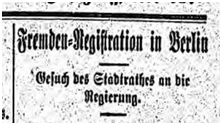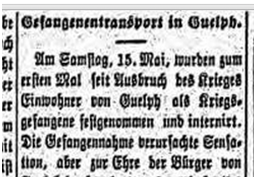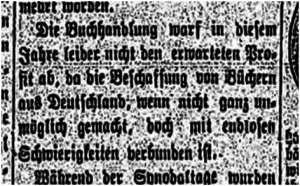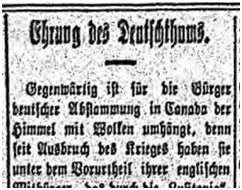After the sinking of the RMS Lusitania, the Berliner Journal reported an increasing number of anti-German incidents. Several times Germans were arrested due to their ethnic origin as they were suspected of spying. For example, a German bank employee in Berlin was arrested because his suit looked like a German uniform. In Toronto, a promotional sign for a beer brewed in Berlin, Ontario, had to be taken down due to the name Berlin. Even though the sign showed the British flag and said “Made in Canada”, the Toronto city council prohibited the use of the advertisement.
On May 19, the editors published another article regarding anti-German sentiment. The article sympathized with the emotional reactions of the Canadians, stating that the sinking of a German ship would have caused just as much outrage among Germans. Furthermore they praised the Canadian government for intervening in violent actions against the German population. The article encouraged Germans to stay quiet and refrain from patriotic statements in order to show their loyalty and remain safe.
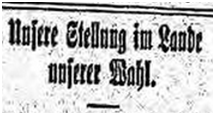
(“In Preston” Berliner Journal, 12 May 1915; “Ein junger angestellter Deutscher” Berliner Journal, 19 May 1915; “Protest gegen deutsche Bieranzeige” Berliner Journal, 19 May 1915; „Unsere Stellung im Lande unserer Wahl“ Berliner Journal, 19 May 1915)
